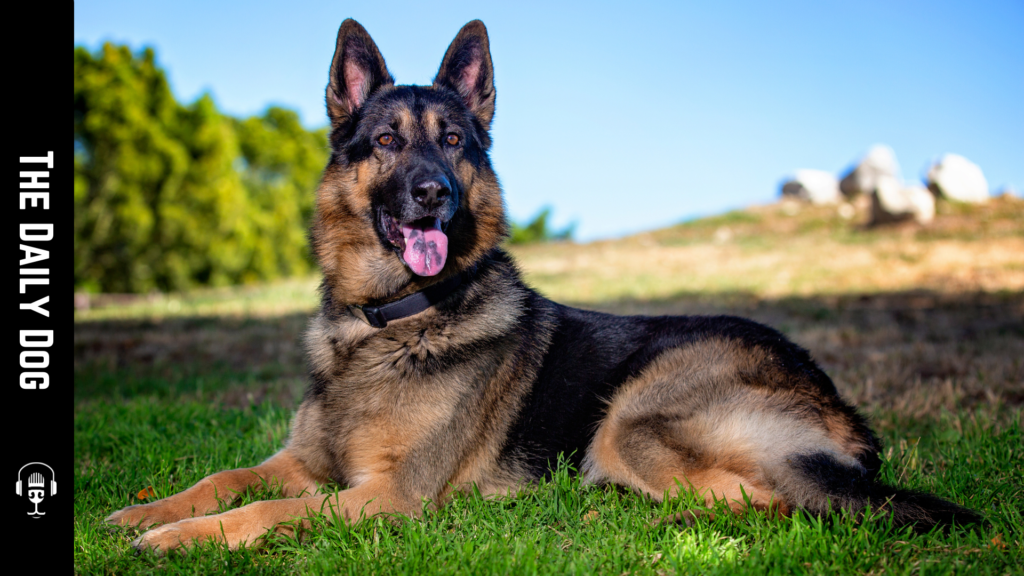The German Shepherd Dog (GSD) stands out as one of the most popular and versatile dog breeds worldwide. Known for their intelligence, loyalty, and striking appearance, these dogs have a rich history and a vibrant presence in various roles, from service animals to beloved family pets. This article delves into the characteristics, history, care, and training of the German Shepherd, offering insight into why this breed continues to capture hearts.
A Brief History of the German Shepherd
The origins of the German Shepherd can be traced back to the late 19th century in Germany. The breed was developed by Max von Stephanitz, who aimed to create a versatile herding dog. The German Shepherd’s ancestors are primarily herding dogs, known for their intelligence and working ability.
Von Stephanitz’s vision materialized when he selected a dog named Hektor Linksrhein, later renamed Horand von Grafrath, as the first registered German Shepherd. This breed quickly gained popularity due to its exceptional qualities, evolving from a herding dog to a multi-functional working dog. Throughout the 20th century, German Shepherds were used in various capacities, including police work, military service, search and rescue, and assistance for individuals with disabilities.
Physical Characteristics
German Shepherds are known for their distinctive appearance, characterized by:
- Size: Adult German Shepherds typically weigh between 50 to 90 pounds, with males generally larger than females.
- Coat: They have a double coat that can be short or long, with colors ranging from black and tan to sable, and solid black or white.
- Eyes: Their expressive, almond-shaped eyes are usually dark and convey intelligence and alertness.
- Ears: The breed is known for its upright, pointed ears that contribute to its attentive demeanor.
These physical traits not only contribute to their striking looks but also their functionality as working dogs.
Temperament and Personality
German Shepherds are renowned for their intelligence and loyalty. Here are some key traits that define their temperament:
- Intelligent: Ranked among the top breeds for intelligence, German Shepherds excel in obedience training and problem-solving.
- Loyal: They form strong bonds with their families and are known to be protective, making them excellent guard dogs.
- Energetic: These dogs require regular exercise and mental stimulation to remain happy and healthy. Daily walks, playtime, and training sessions are essential.
- Social: While they can be reserved with strangers, proper socialization from an early age can help them become more comfortable around new people and situations.
Training and Socialization
Training is crucial for German Shepherds, not only for obedience but also for fostering good behavior. Here are some tips for effective training:
Start Early
Begin training your German Shepherd as a puppy. Early socialization and exposure to various environments, people, and other animals will help them develop into well-rounded adults.
Use Positive Reinforcement
German Shepherds respond best to positive reinforcement techniques, such as treats, praise, and play. This approach fosters a loving bond between you and your dog while encouraging desired behaviors.
Consistency is Key
Establishing consistent commands and routines is vital. Inconsistent training can confuse your dog and hinder their learning process.
Mental Stimulation
Incorporate mental challenges into training sessions. Puzzle toys, scent work, and advanced obedience exercises can keep your German Shepherd engaged and mentally sharp.
Health Considerations
Like all breeds, German Shepherds are prone to specific health issues. Regular veterinary check-ups and a healthy lifestyle can help manage these risks:
- Hip and Elbow Dysplasia: These genetic conditions affect the joints, leading to discomfort and mobility issues.
- Degenerative Myelopathy: A progressive neurological disorder that can affect mobility in older dogs.
- Bloat: A serious condition that can occur in deep-chested breeds like the German Shepherd, requiring immediate veterinary attention.
Maintaining a balanced diet, regular exercise, and routine veterinary care are essential components of a German Shepherd’s health regimen.
Grooming Needs
German Shepherds have moderate grooming needs. Here are some essential grooming tips:
- Brushing: Regular brushing (at least once a week) helps minimize shedding and keeps their coat healthy.
- Bathing: Only bathe your German Shepherd when necessary to avoid stripping natural oils from their coat.
- Dental Care: Regular dental hygiene is crucial. Brushing your dog’s teeth and providing dental chews can help maintain oral health.
- Nail Trimming: Keep your German Shepherd’s nails trimmed to prevent discomfort and potential injuries.
Living with a German Shepherd
German Shepherds thrive in active households where they can participate in family activities. Here are some considerations for potential owners:
Space Requirements
While German Shepherds can adapt to smaller living spaces, they do best in homes with ample space to roam and play. A fenced yard is ideal for safe outdoor activities.
Exercise Needs
These dogs require daily exercise to prevent boredom and destructive behavior. Aim for at least 1 to 2 hours of physical activity each day, including walks, playtime, and training sessions.
Family Compatibility
German Shepherds are known to be excellent family pets. Their protective nature combined with their affectionate demeanor makes them great companions for children. However, early socialization is essential to ensure they are comfortable around kids and other pets.
Activities and Sports
German Shepherds excel in various dog sports and activities, showcasing their intelligence and athleticism. Some popular activities include:
- Obedience Training: Competing in obedience trials can be a rewarding way to bond with your dog while honing their skills.
- Agility: This fun sport allows German Shepherds to navigate obstacle courses, providing both physical and mental exercise.
- Schutzhund: A German dog sport that tests a dog’s tracking, obedience, and protection skills, well-suited for the breed’s natural instincts.
- Service Work: Many German Shepherds serve as guide dogs, therapy dogs, or search and rescue dogs, utilizing their intelligence and loyalty in meaningful ways.
Conclusion
The German Shepherd Dog is a breed that embodies strength, intelligence, and loyalty. Whether as a family pet, working dog, or both, they bring joy and companionship to countless households around the world. Their rich history, unique characteristics, and versatility make them a beloved choice for dog enthusiasts.
If you’re considering adding a German Shepherd to your family, be prepared for a committed and active lifestyle. With proper training, socialization, and care, a German Shepherd can be a devoted and loving companion for many years. Embrace the journey of owning this remarkable breed, and you’ll discover the endless rewards they bring to your life.
By understanding the needs and traits of the German Shepherd, you can ensure a fulfilling relationship with your four-legged friend, creating memories that last a lifetime.










